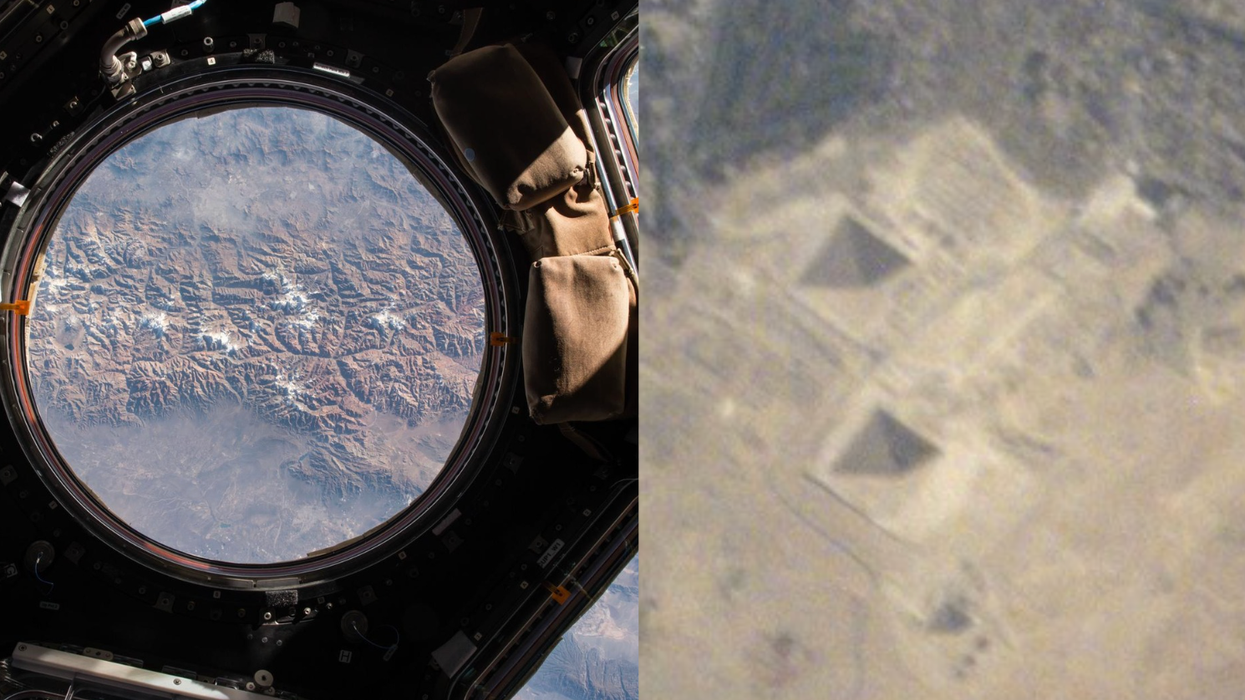Dispatches from places you didn't think had tourists.

Iraq
"Fierce fighting in Baghdad's Sadr City fuelled the bloodshed in April, with at least 1,073 people killed across Iraq and the U.S. military's toll hitting a seven-month high."- AFP, May 1, 2008The first thing I saw when I opened my eyes in the half light was a dark brown stain smeared all over the wall in front of me, not more than a few inches from my nose. "Welcome to Sadr City," was the thought that crossed my mind.I was lying on the dusty floor of an abandoned meatpacking factory, the hard surface digging into my bones. It had been a long, uncomfortable night and now it seemed I had been hugging a wall that may very well be covered in human waste. Charming.Like the soldiers packed into the room with me, I was filthy and awoke tired, but at least we were all still alive. Sadr City, a Shiite slum in eastern Baghdad, is currently the most vicious battleground in the Iraq War-one that is underreported, and therefore almost unseen. It is the fight for the future of Iraq, where the United States and Iran are fighting a war neither side wants to admit is already well under way. It is a life-and-death fight for the several million people living here, for the Iraqi soldiers sent in to take this ground from Iranian-backed militias, and for U.S. soldiers who have not seen anything like this anywhere else in Iraq.Some days a single convoy is hit by armor-piercing bombs, rocket-propelled grenades, mortars, and heavy machine-gun fire. The attacks are malicious, deliberate, and deadly. And there is one aim: to kill as many American soldiers as possible. That's what brought me here, to witness possibly the most significant battle of this war at a time when the eyes of the world-and the United States-seem to be closed to the reality on the ground.I came here to live with the soldiers, to hear their stories. And to talk to the people trapped in their homes, surviving without electricity, water, and food, caught in a fight they did not seek and from which there is no escape. I came to Sadr City in the hope that someone, somewhere, is paying attention.LARA LOGAN is CBS News's Emmy-award-winning chief foreign correspondent. She is also a correspondent for 60 Minutes.
Venezuela
"President Hugo Chavez on Wednesday ordered the expropriation of Venezuela's largest steel maker after attempts by the government to acquire a majority stake in the company failed."-Associated Press, May 1, 2008In Venezuela, you know to stock up on canned food and toilet paper when middle-class housewives lean out of high-rise apartment blocks to bang pots and denounce President Hugo Chavez. It means another political convulsion is coming and anything could happen.Anti-Chavez students march and get teargassed by the police, and from the hilltop slums around Caracas pro-Chavez supporters swarm down into the capital, a sea of red T-shirts, to rally for mi presidente. Throw in socialist revolutionary rhetoric and nationalizations-oil, telecoms, steel, cement, maybe beer next-and it looks like class warfare in the tropics.The opposition invokes Zimbabwe but this remains an Americanized society of baseball, SUVs, and boob jobs enjoying a petro-fuelled consumer boom. Democracy is alive and political violence is rare. A midnight knock on the door usually means the pizza guy. Pretty much everybody agrees George W. Bush is a pendejo (look it up), but the average gringo is still welcome and capitalists still make money.Politics, alas, is inescapable. For a break I drove five hours to Cumana, took a boat to an island, swam to a teeny speck of sand, lay down and closed my eyes. I woke to a woman shouting. She had arrived on a Jet Ski and spotted broken bottles in the surf. "Chavistas! No manners!"RORY CARROLL is a foreign correspondent for The Guardian. He is based out of the newspaper's Caracas bureau.
Pakistan
"The Pakistani government is close to an agreement to end hostilities with the most militant tribes in its turbulent border area, whose main leader is accused of orchestrating most of the suicide bombings of recent months and the assassination of former Prime Minister Benazir Bhutto."- The New York Times, April 25, 2008In Pakistan's northwest, along the border with Afghanistan, tribesmen live by an uncompromising code of conduct that is a strange mix of tribal tradition and religious beliefs. The area is a hotbed of militancy, where Pakistan's new democratically elected government is trying to talk angry tribesmen into choosing peace over war and ordering foreign fighters out of the region in exchange for an end to Pakistani and U.S. military assaults that have killed both the innocent and the guilty, and created more enemies than friends.The sun has been up barely 10 minutes as we head northwest toward Peshawar, Pakistan's ancient city at the foot of the Khyber Pass. It's a trip I've taken a thousand times before, but each time I marvel at its history, and imagine the men and their camel caravans that trudged through here thousands of years ago. Modernity and Pakistan are not antithetical to one another, but it's a battle-between the majority who embrace the 21st century and those who long for the seventh century. It is a seventh-century holdout that I am on my way to see. I am to meet Mullah Abdul Rahman. He had been a warrior with the Taliban when they ruled Afghanistan, returning to his home when they were overthrown; he rejoined their ranks when he could find no place in the new Afghanistan.The car comes to a stop and Rahman come out to meet us. He seems nervous. He slips into the car, his white shalwar kameez wrinkled but clean and his turban wrapped loosely around his dark hair. His black beard and wire-rimmed glasses give him a studious look. But then he begins to speak. His voice is steady but his words sound angry to me. He lives in the tribal regions of Pakistan, slipping back and forth across the border. It isn't personal and it isn't about spreading his religion worldwide. But it is about imposing his brand of rule on his homeland, regardless of what the majority might want.As I listen to him I think, He has little to lose back in Afghanistan, where he has tried and failed to find a job, ran afoul of the local administration, and saw the international forces as his enemy. And I am thinking about how scary his words are, and how sad, and how they are echoed by so many young men in his homeland.KATHY GANNON is an award-winning international correspondent for the Associated Press. She has reported in the Middle East and South and Central Asia for two decades.
Kosovo
"Kosovo told Serbia on Tuesday it would not yield one inch of its territory, and a violent protest by ethnic Serbs in Bosnia against Kosovo's secession highlighted continued volatility in the Balkan region."- Reuters, February 26, 2008In February, I watched tens of thousands of jubilant ethnic Albanians dance in the streets of Priština to celebrate Kosovo's independence from Serbia. But in recent days, this euphoria has faded as locals adjust to the harsh reality of living in one of Europe's newest and poorest nations.Priština, Kosovo's dusty, war-torn capital, is at a crossroads. Twenty-somethings crowd newly opened shopping centers and stylish bars, yet the electricity grid is so unreliable that the lights go on and off several times a day. Along the city's main boulevards, statues of Kosovo Liberation Army guerrillas, idealized to look like James Dean, stare down at passersby, while the two-headed eagle of the red-and-black Albanian flag-long displayed on the battlefield as a symbol of resistance and still despised by Serbs-flies everywhere.This is a rare place where people adore the United States-the architect of NATO's 1999 bombing campaign against Serbian forces under President Slobodan Miloševi?. A replica of the Statue of Liberty sits atop the Hotel Victory, and Priština's main street is dubbed Bill Clinton Boulevard. In the last 10 years, Kosovo has been trying to forge a new multi-ethnic identity after a civil war that killed 10,000 people. The country is 90 percent Albanian, with a minority population of Serbs, most of whom live in poor, segregated enclaves. It will take a generation-if not longer-to overcome past resentments.The newborn country's very existence is being resisted by Serbia, which regards Kosovo as its medieval heartland. In the northern city of Mitrovica-long a flashpoint for violence-tensions are high. Defiant Serbs recently torched U.N. border posts and occupied a U.N. courthouse to try to make the administration of the new state untenable. Many in the West fear the territory's partition is all but inevitable.DAN BILEFSKY is an Eastern and Central Europe correspondent for The International Herald Tribune and The New York Times.
Kenya
"Riots erupted in Kenya on Tuesday as opposition leaders announced that they were suspending talks with the government over a stalled power sharing agreement."- The New York Times, April 9, 2008.Was Kenya in danger of becoming a failed state? A lot of people thought so this winter. But after spending two months there, I think the concern is a reflection of conflated international interest in the country and not the actual situation on the ground.I arrived in Kenya the first week of March and not one place I visited looked anything but serene. It was even rather dull. People in Nairobi seem to spend a lot of time at the mall. The riots had stopped in the Rift Valley and the Nairobi slums. A visit to the slums yielded no more excitement than a drive down the posh street I stayed on. One drunk man prohibited me from taking his picture for fear that I would show it to the police and implicate him in a past riot, but that was the only excitement.From next door in Somalia, we got news that 600,000 children might die of malnutrition by the middle of spring. And more than a million refugees were streaming out of the embattled capital of Mogadishu. The BBC reported that an entire village of women and children was either shot to death or disfigured by the Interahamwe rebels in eastern Congo, one of many incidents that week by any number of homicidal militias there. But Somalia and Congo don't make international news because their tragedies have been going on for almost two decades. Kenya long ago converted, in the eyes of the West, to "civilized" status. That's why it was so worrying when that order seemed to evaporate.People suffered in Kenya, and about 200,000 continue to live precariously in refugee camps. In the slums women worry for their sons, because the police haven't finished investigating the crimes of earlier this year. But is it an unstable country, a dangerous place to visit? No. I feel like I'm in Los Angeles. Most of the time, I'm in Nairobi-stuck in traffic listening to Tupac Shakur in the bus, either on my way to the mall or coming home from the mall. "It's like Africa lite," said my friend Matt when we discussed the ease with which we foreigners can operate in Nairobi.EMILY MEEHAN is a freelance correspondent in Africa. She writes for NPR, Glamour, Slate.com, Wired News, and others.
















 Otis knew before they did.
Otis knew before they did.